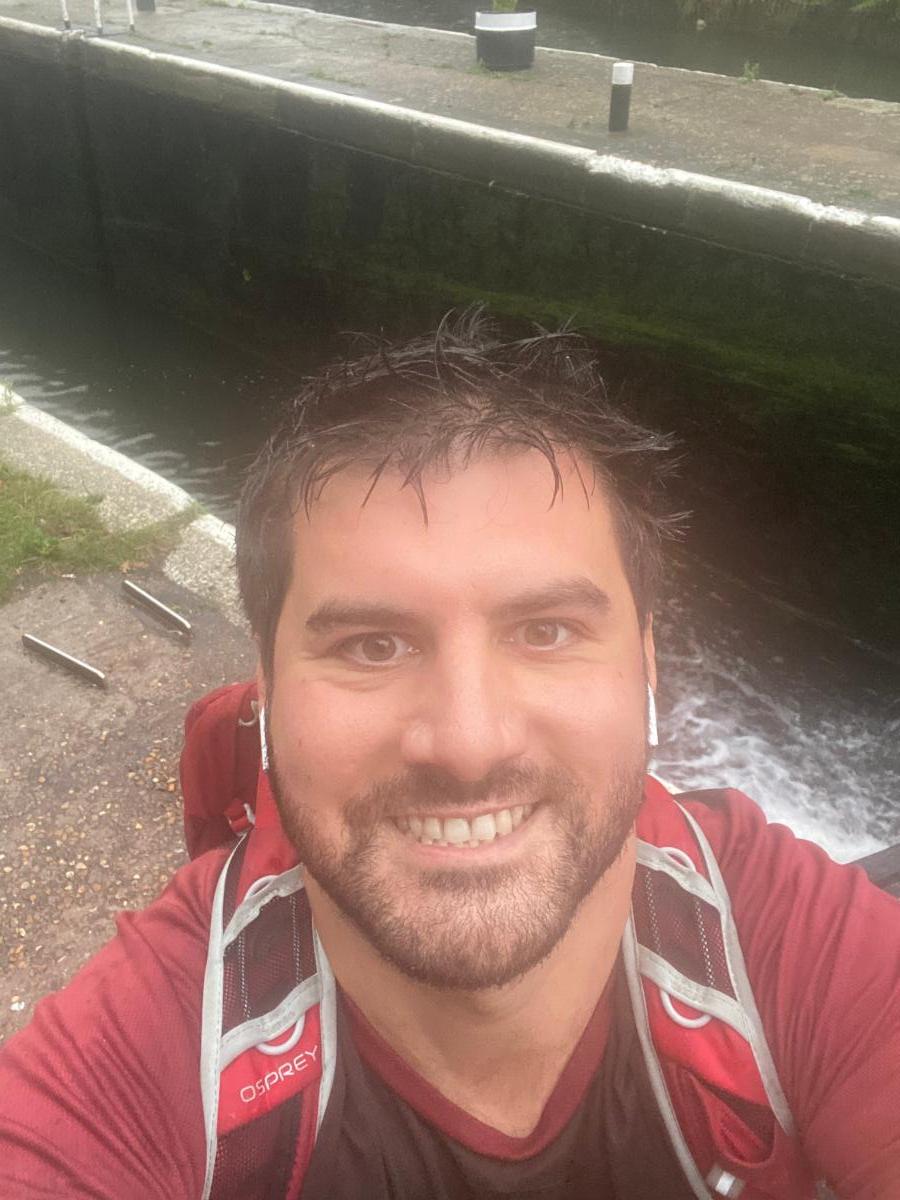“It's essential for me to be a role model and discuss issues as a gay person openly”

Our focus this Pride Month is on role models, Senior Clinical Site Manager Marc Robinson shares how role models allowed him to express himself and normalised his sexuality.
“I grew up under the section 28 legislation, described by Matthew Todd as ‘the most anti-gay piece of legislation of modern times, became law amid a tsunami of fear and hatred’, so as a gay child and teenager, I had no role models and wasn't aware of gay culture or history.
“Joining the NHS at 18, meant I was exposed to many LGBTQI+ allys that I could look up to and feel accepted by.
“These staff had seen and experienced many things through working in healthcare; open and supportive conversations was my experience. These role models allowed me to express myself and learn about LGBTQI+ history, which normalised my sexuality.
“It was effortless in the 1990’s to see the stereotypes portrayed on TV of gay men and I wonder: am I expected to be like this?
“This didn't resonate with me. I accept my sexuality openly but acknowledge that not everyone feels they can. We must think about how we might help acceptance and I like to think of my sexuality as the least interesting part of me.
“Role modelling makes me think of Brené Brown, who talks about vulnerability as a key part of being human and leading others. Given my experiences and the challenges gay men face, it's essential for me to be a role model and have the ability to discuss all issues as a gay person with people openly, whilst being an ally to the rest of the LBTQI+ community.
“I think about encouraging people to accept themselves just the way they are. That's why I wear a progress pride badge, so patients and staff feel they can have a conversation about their sexuality and feel seen in the NHS.
“Healthcare inequity for people identifying as LGBTQI+ is still an issue and remains well documented in gay and healthcare literature. Encouraging open discussion with staff and recognising when we may be able to cultivate improvement is a continuous struggle.
“There are still misunderstandings within the workplace and the broader community about what it is like to be a gay man, for example, being asked recently by a healthcare provider ‘who's the women in the relationship?’.
“The only answer I could muster was ‘where both men, it's kind of the point’.
“I’ve lived in east London with my partner of 15 years and as a nurse, I have been involved in the transfusion of blood products.
“I have seen them save lives and I have always wanted to donate blood, but have never been permitted to - until 14 June 2021.
“Yes, until this very Pride month, gay men like myself were essentially not allowed to donate. There were no individual risk assessments, and the regulations were not based on science and, in my opinion, were steeped in homophobia.
“I have campaigning for many years for a policy change with my sexuality and professional role in mind and that's why the change in regulations has meant so much to me and is the essence of Pride.”
For more information about the staff diversity network visit the LGBTQ+ WeShare page or email the team for support or to express your interesting in joining.
Related articles:
 Afrikaans
Afrikaans Albanian
Albanian Amharic
Amharic Arabic
Arabic Armenian
Armenian Azerbaijani
Azerbaijani Basque
Basque Belarusian
Belarusian Bengali
Bengali Bosnian
Bosnian Bulgarian
Bulgarian Catalan
Catalan Cebuano
Cebuano Chichewa
Chichewa Chinese (Simplified)
Chinese (Simplified) Chinese (Traditional)
Chinese (Traditional) Corsican
Corsican Croatian
Croatian Czech
Czech Danish
Danish Dutch
Dutch English
English Esperanto
Esperanto Estonian
Estonian Filipino
Filipino Finnish
Finnish French
French Frisian
Frisian Galician
Galician Georgian
Georgian German
German Greek
Greek Gujarati
Gujarati Haitian Creole
Haitian Creole Hausa
Hausa Hawaiian
Hawaiian Hebrew
Hebrew Hindi
Hindi Hmong
Hmong Hungarian
Hungarian Icelandic
Icelandic Igbo
Igbo Indonesian
Indonesian Irish
Irish Italian
Italian Japanese
Japanese Javanese
Javanese Kannada
Kannada Kazakh
Kazakh Khmer
Khmer Korean
Korean Kurdish (Kurmanji)
Kurdish (Kurmanji) Kyrgyz
Kyrgyz Lao
Lao Latin
Latin Latvian
Latvian Lithuanian
Lithuanian Luxembourgish
Luxembourgish Macedonian
Macedonian Malagasy
Malagasy Malay
Malay Malayalam
Malayalam Maltese
Maltese Maori
Maori Marathi
Marathi Mongolian
Mongolian Myanmar (Burmese)
Myanmar (Burmese) Nepali
Nepali Norwegian
Norwegian Pashto
Pashto Persian
Persian Polish
Polish Portuguese
Portuguese Punjabi
Punjabi Romanian
Romanian Russian
Russian Samoan
Samoan Scottish Gaelic
Scottish Gaelic Serbian
Serbian Sesotho
Sesotho Shona
Shona Sindhi
Sindhi Sinhala
Sinhala Slovak
Slovak Slovenian
Slovenian Somali
Somali Spanish
Spanish Sundanese
Sundanese Swahili
Swahili Swedish
Swedish Tajik
Tajik Tamil
Tamil Telugu
Telugu Thai
Thai Turkish
Turkish Ukrainian
Ukrainian Urdu
Urdu Uzbek
Uzbek Vietnamese
Vietnamese Welsh
Welsh Xhosa
Xhosa Yiddish
Yiddish Yoruba
Yoruba Zulu
Zulu